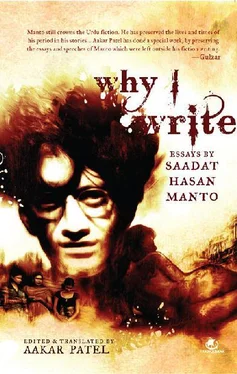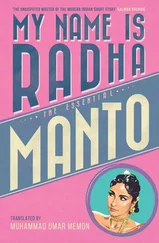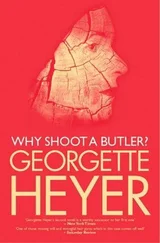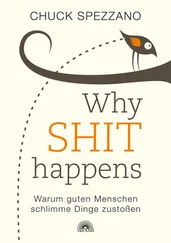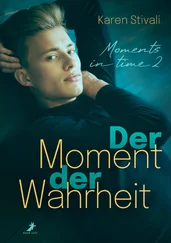“God”, now afraid, whimpered: ‘What do you mean, boss?’
The boss, to me the very vision of Lord Indra, said with some arrogance: ‘ Moonch kis ka hai ?’(Whose moustache is this?)
“God” twirled the said piece of facial hair and said, with not a little pride: ‘Boss, this is real.’
Boss was convinced, and so ordered: ‘ Tum ja ne ko sakta, ’ (You may go now). And so “God” went.
Boss now turned to me, and said: ‘You! You’re hired.’
I learnt the next day, on turning up for my first day of work that my name wasn’t Saadat Hasan Manto, but for some reason, not apparent to me, “Munshi”.
My tasks, and this was made clear, were three. First, getting a paan for the director every five minutes (or so it seemed). Second, to not speak. Third, if these two were performed competently, to write, every so often, a dialogue in incorrect Urdu. And then to not speak.
Those days I was not particularly in love with the Urdu language. And so, every day when I got together with the director to maul it, it was fine.
One day, however, that changed.
Boss came in to shake the director’s hand and say: ‘I sold the rights to our thirteenth film.’
What’s it called, the director asked.
Boss smiled: ‘It’s brilliant. Pharaj-e-Ada .’
Director turned to me: ‘Munshi saheb, begin from this moment to write Faraj-e-Ada . But first, please get me a paan, a desi kalakandi …’
I interrupted: Desi kalakandi, roasted supari, a little chuna on the side and a Passing Soap cigarette. These I will bring immediately. But this “Farz-e-Ada” is absolutely wrong.’
Boss went red. ‘What did you say…?’
‘I said what you said, chalne ko nahin sakta ( won’t work).’
Director said: ‘Why chalne ko nahin sakta ?’
I said: ‘It’s all wrong. Adaigi Farz (Obeying command) it could be. Or call it Farz Adaigi (Command-obeying). At the most you may call it Ada-e-Farz (The grace of the command) and perhaps in time, as the movie unfolds, its meaning might emerge. But for the sake of god change the name from Farz-e-Ada (Command of the grace)!’
Boss stared at me. Then he said: ‘Have you fried your brain, Munshi? Title change hone ko nahin sakta (The title cannot be changed ) . I’ve already sold the movie.’
Hearing this fried my brain. And I lost my job.
The story of my losing the next job is similar. The name of the movie this time was: “ Ulloo ke Do Patthay”.
I objected. ‘What is this Ulloo ke Do Patthay ? It should be Do Ulloo ke Patthay .’
I got the answer: ‘Who are you, again? It’s our money at stake here. If we want we’ll call it Patthay ke Do Ulloo .’
And so, dear reader, work on Ulloo ke Do Patthay began, and I was again looking for work.
Thus I began to fall out of love with films. My total contempt for them, however, was still a few years ahead.
After working for small units, I found work with one of the larger studios. I spent four years writing films and during this time my love ended. In short, here’s how.
An actress famed for her horsemanship was shooting one day. I noticed a wooden horse was brought to the sets. Not the whole horse, mind you, only its back. On this was a saddle. Three men lifted the actress and mounted her onto the horse.
The lights came on.
‘Go!’ the director said.
A man began to rock the horse. The camera rolled.
The next day the shot shifted to outdoors. An expert rider in the actress’s clothes tore about on a real horse — a stallion so fierce it would rear up at the very thought of someone touching it.
The shots of the horse and rider going this way and that, were taken. When all this was spliced together, I could have sworn I saw the famous actress herself astride the stallion.
Then it was required that we shoot a close up of her hands holding the reins. Alas, the hands of this fairy-bodied ( pari paikar ) woman were as ugly as her face was beautiful. Her fingers were short and stubby. The director summoned a dozen extras. Of these girls, one had pretty hands. These were dusted up with whitening agent and the close up shots taken.
At this point I thought of Chacha Ghalib: ‘ Kaghazi hai pairahan har paikar e tasveer ka .’*
Another time, we had to show that a storm had broken. I saw many men climb a machan positioned over the set with watering cans in their hands and showering water on the sets. An airplane’s propeller was wheeled in and this created a terrific gale. Two other men stood with baskets of leaves. Fistfuls of these were hurled into the propeller’s wake. When I saw all this on screen, the gooseflesh of my brain flared. How could it be possible? The hero was braving this fierce storm manfully in his little boat.
And this is how it is in all films.
The milk boiling over — that’s limestone and water.
It’s snowing in Kashmir — that’s labourers showering bits of paper and soap suds. The hero and heroine are romancing in the fog — that’s actually smoke from a fire of dry grass. And it’s suffocating them. Tears are glycerine. A man sings, another moves his lips.
Wooden swords, wooden guns, wooden telephones.
Our heroine is short-haired but on screen her mane is so lustrous and long it could be for an advertisement.
A punch is thrown which touches nobody. But it sends a couple of villains flying onto the roof.
It’s a blazing hot day, but the camera has a red filter and, lo, it’s now cool moonlight. If a zebra is not to be found, a donkey is painted. All of this, over and over again, was, as we say in English, the straw that broke the camel’s back.
I observed myself in the cinema hall actually cheering loudly with the crowds when I should have known better.
What an effective fraud is this business of films, that it should have also defrauded the one who helped make it.
And so, this is why, in case you had asked me, I don’t watch movies.
— (Originally published as Main Film Kyon Nahin Dekhta )
* one of the most impenetrable couplets by Mirza Ghalib
Despite his protestations in the previous essay, Manto loved Bollywood, and was always ready to jump to its defense. He wrote this piece at a time when only a certain class of women entered the film industry. Entertainment in general and films in particular were not seen as the sort of place where women from respectable families should be. The reason was that the connection between the tawaif, her kotha and the movies was strong and at a time when skilled dancers were not from the middle class. Manto wrote this during his early phase in the movie industry.
From the time that Hindustani films and working in them has come to prominence, the greater part of society has debated this question. Should women of virtue work in movies or not?
Some gentlemen, who want this profession to be cleansed of its image and association with women of the street, want women of good virtue to enter films.
There are other gentlemen for whom this association with cinema is not only off-putting, but a crime. These guardians of morality forget that though they seek to erase the stain of immorality from one set of faces, it will of course remain on another set.
Removing the women of the street from the film set will not mean that the market for the sale of women’s bodies for pleasure will end.
Those who oppose the presence of fallen women in cinema, whose skill at acting and singing otherwise brings them entertainment and relief, forget that these women were once not fallen.
Читать дальше
